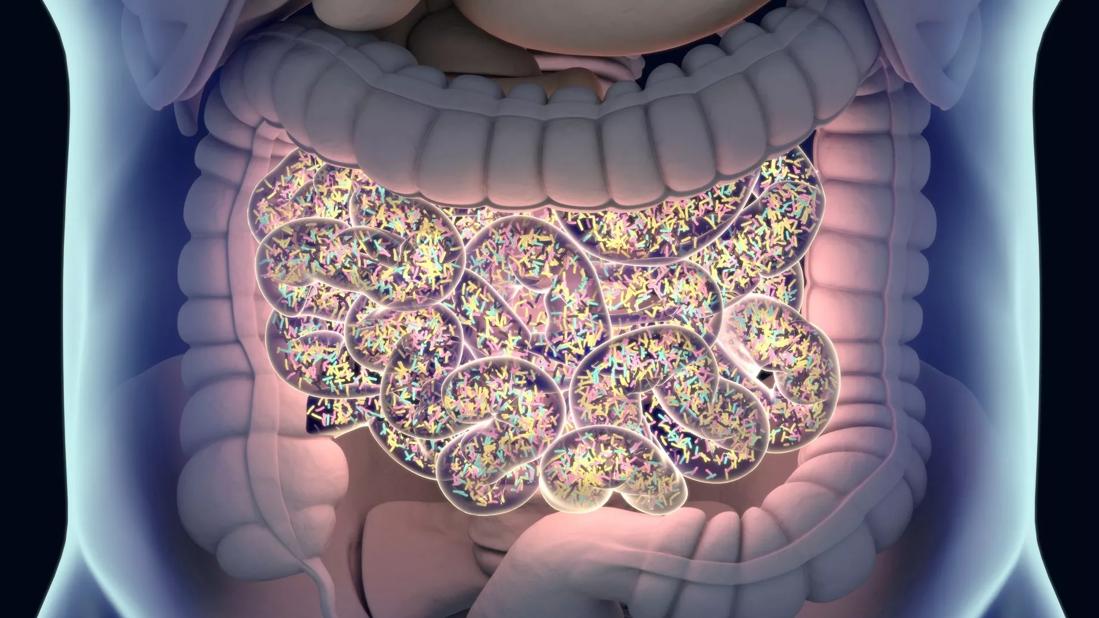Large-scale joint study links elevated TMAO blood levels and chronic kidney disease risk over time

Elevated blood levels of a molecule called trimethylamine N-oxide (TMAO) strikingly predicted future risk of developing chronic kidney disease in two large National Institutes of Health cohorts, Cleveland Clinic and Tufts University researchers report.
Advertisement
Cleveland Clinic is a non-profit academic medical center. Advertising on our site helps support our mission. We do not endorse non-Cleveland Clinic products or services. Policy
TMAO is a metabolite formed by gut bacteria from nutrients enriched in red meat, eggs, soy and other animal source foods. This large-scale study measured blood levels of TMAO over time and followed the kidney function of more than 10,000 U.S adults with normal kidney function at baseline over an average follow-up period of 10 years. The investigators found that adults with higher TMAO blood levels were at higher risk for subsequent development of chronic kidney disease. Higher TMAO levels were also associated with a faster rate of declining kidney function in people with normal or impaired kidney function at baseline. These associations were independent of sociodemographic characteristics, lifestyle habits, diet, and other known risk factors for kidney disease.
The investigators found that TMAO levels were as strong or even stronger a risk factor than several other well-established risk factors for kidney disease such as diabetes, hypertension, age and race. These new results support the role of diet and the gut microbiome in chronic kidney disease development. The findings also suggest that interventions such as drugs and diet and microbiome modifications targeting the TMAO pathway could prevent kidney disease. Chronic kidney disease is a major and growing public health challenge in both the U.S. and globally, affecting about 10 to 15% of the population worldwide. It also is a strong risk factor for cardiovascular disease.
The study was a collaboration between a Cleveland Clinic research team led by Stanley Hazen, MD, PhD, senior author and Chair of the Department of Cardiovascular & Metabolic Sciences, and investigators from the Food is Medicine Institute at the Friedman School of Nutrition Science and Policy at Tufts University, including first author Meng Wang, PhD, and co-senior author Dariush Mozaffarian, MD, DrPH.
Advertisement
Cleveland Clinic researchers first identified possible links between the gut microbiome, elevated levels of TMAO, and chronic kidney disease in 2015 from clinical and preclinical model studies. The team subsequently developed drugs that targeted the gut microbial TMAO pathway. Preclinical studies with these drugs showed that blocking TMAO generation can prevent and treat impaired kidney function and fibrosis in multiple chronic kidney disease models. In the present study, the team showed for the first time in two large-scale community-based cohorts that elevated TMAO blood levels are independently linked to decline in kidney function.
“These results are from individuals of varied ethnic and sociodemographic backgrounds, who had normal kidney function at the start, which is one of the primary differences from our 2015 study,” Dr. Hazen says. “One group was comprised of generally healthy 45+ year-olds across four different ethnicities, the other was generally healthy 65+ year-olds. The participant variability helps ensure the results are generalizable.”
The findings indicate a remarkably strong clinical link between elevated TMAO and increased risk for developing chronic kidney disease, Dr. Hazen says. Previous research connected TMAO with elevated risk of events like heart attack, stroke, aortic aneurysm and heart failure. The data from this study reinforces the growing body of evidence indicating that lowering TMAO with pharmaceuticals could be an effective treatment in patients at risk for, or with early signs of, kidney disease.
Advertisement
“Our study is a crucial complement to studies in preclinical models supporting TMAO as a novel biological risk factor for chronic kidney disease,” says Dr. Wang, research assistant professor at the Friedman School. “TMAO are highly modifiable by both pharmacologic interventions and lifestyle changes, like diet. Besides using novel drugs to lower TMAO in patients, using dietary interventions to lower TMAO in the general population could be a cost-efficient and low-risk preventive strategy for chronic kidney disease development.”
“These exciting new results show the power of bringing together scientists at the cutting-edge of molecular biology, diet and nutrition, the gut microbiome, epidemiology and human health,” says Dr. Mozaffarian, Director of the Food is Medicine Institute at the Friedman School. “The health of our gut and its trillions of bacterial residents is increasingly linked to our own.”
Dr. Wang added that investigators are working on a study using genetic data to help assess the potential cause-and-effect relationship between TMAO and chronic kidney disease. They also plan to study more definitively whether dietary and other lifestyle changes may prevent chronic kidney disease development and progression. The Hazen lab previously completed multiple studies on the role of diet and red meat in affecting TMAO levels, within the context of cardiovascular health.
Dr. Hazen also directs the Cleveland Clinic’s Center for Microbiome & Human Health and is the co-section head of Preventive Cardiology. He holds the Jan Bleeksma Chair in Vascular Cell Biology and Atherosclerosis.
Advertisement
This research was supported by grants from the National Institutes of Health, as well as the American Heart Association Postdoctoral Fellowship.
Dr. Hazen is named as co-inventor on pending and issued patents held by Cleveland Clinic relating to cardiovascular diagnostics and therapeutics and has the right to receive royalty payment for inventions or discoveries related to cardiovascular diagnostics or therapeutics. Dr. Hazen also reports having been paid as a consultant for P&G and receiving research funds from P&G for unrelated work.
Dr. Mozaffarian reports research funding from the National Institutes of Health, the Gates Foundation, The Rockefeller Foundation, Vail Innovative Global Research, and Kaiser Permanente Fund at East Bay Community Foundation; personal fees from Acasti Pharma and Barilla; scientific advisory board, Beren Therapeutics, Brightseed, Calibrate, Elysium Health, Filtricine, HumanCo, Instacart, January Inc, Perfect Day, Tiny Organics, and (ended) Discern Dx, Day Two, and Season Health; stock ownership in Calibrate andHumanCo; and chapter royalties from UpToDate.
Complete information on authors, funders, limitations and conflicts of interest is available in the published paper.
This article was originally published here by Cleveland Clinic Lerner Research Institute.
Advertisement
Advertisement

Screening and medication key to better outcomes

Investigators analyze dysnatremias using the Chronic Renal Insufficiency Cohort (CRIC) Study

Cleveland Clinic nephrologist and site PI distills its significance and offers considerations

New retrospective analysis of clinical trial data provide some reassurance regarding the safety of aspirin in patients with CKD

One pediatric urologist’s quest to improve the status quo

First single-port renal vein transposition reduces recovery time and improves outcomes

Consider each patient's unique disease progression and treatment goals when choosing a strategy

First full characterization of kidney microbiome unlocks potential to prevent kidney stones